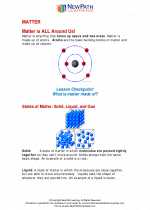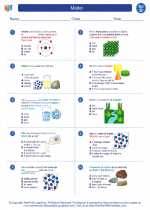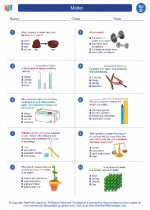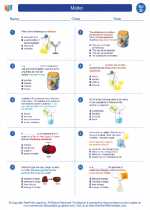Endothermic Reactions
An endothermic reaction is a chemical reaction that absorbs heat from its surroundings. This means that the reaction takes in energy, usually in the form of heat, causing the surroundings to become cooler. Endothermic reactions are often characterized by a decrease in temperature and a feeling of coldness in the immediate vicinity of the reaction.
Examples of Endothermic Reactions
Some common examples of endothermic reactions include:
- Dissolving ammonium nitrate in water
- Mixing barium hydroxide octahydrate with ammonium thiocyanate
- Melting ice
Study Guide: Understanding Endothermic Reactions
To understand endothermic reactions, it's important to remember the following key points:
- Endothermic reactions absorb heat from their surroundings.
- The surroundings of an endothermic reaction will typically experience a decrease in temperature.
- Endothermic reactions often feel cold to the touch.
- Examples of endothermic reactions include dissolving certain substances in water and melting ice.
It's also important to understand the concept of energy transfer in endothermic reactions. This involves recognizing that the reactants in an endothermic reaction have lower energy than the products, and the difference in energy is absorbed from the surroundings in the form of heat.
Studying and understanding endothermic reactions will help you grasp the fundamental principles of thermodynamics and chemical kinetics, and how energy is transferred and transformed during chemical processes.
Remember to practice identifying endothermic reactions in everyday life and in chemical equations to reinforce your understanding of this concept.
Good luck with your studies!
.◂Science Worksheets and Study Guides Fourth Grade. Matter

 Worksheet/Answer key
Worksheet/Answer key
 Worksheet/Answer key
Worksheet/Answer key
 Worksheet/Answer key
Worksheet/Answer key
 Worksheet/Answer key
Worksheet/Answer key
 Vocabulary/Answer key
Vocabulary/Answer key
 Vocabulary/Answer key
Vocabulary/Answer key
